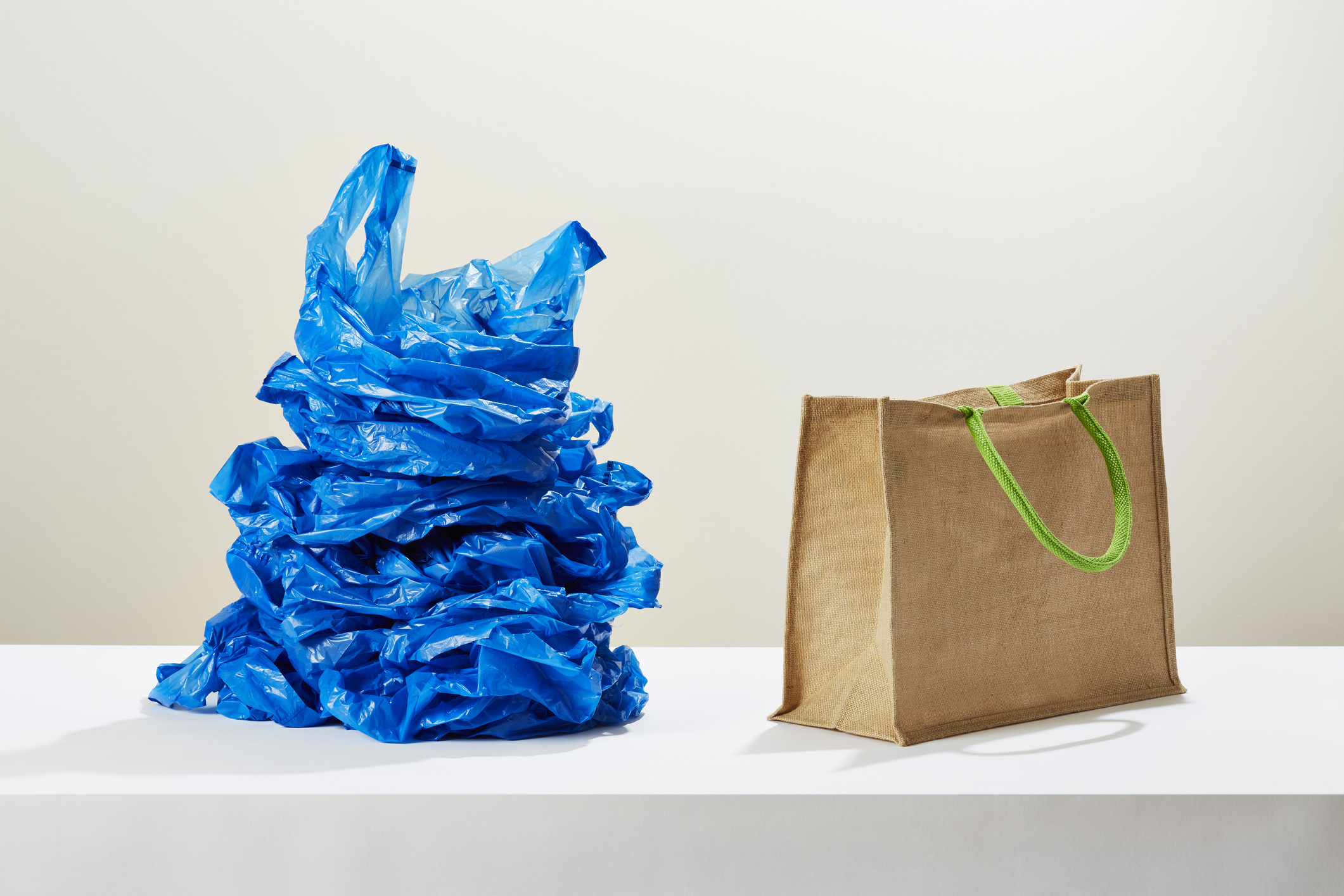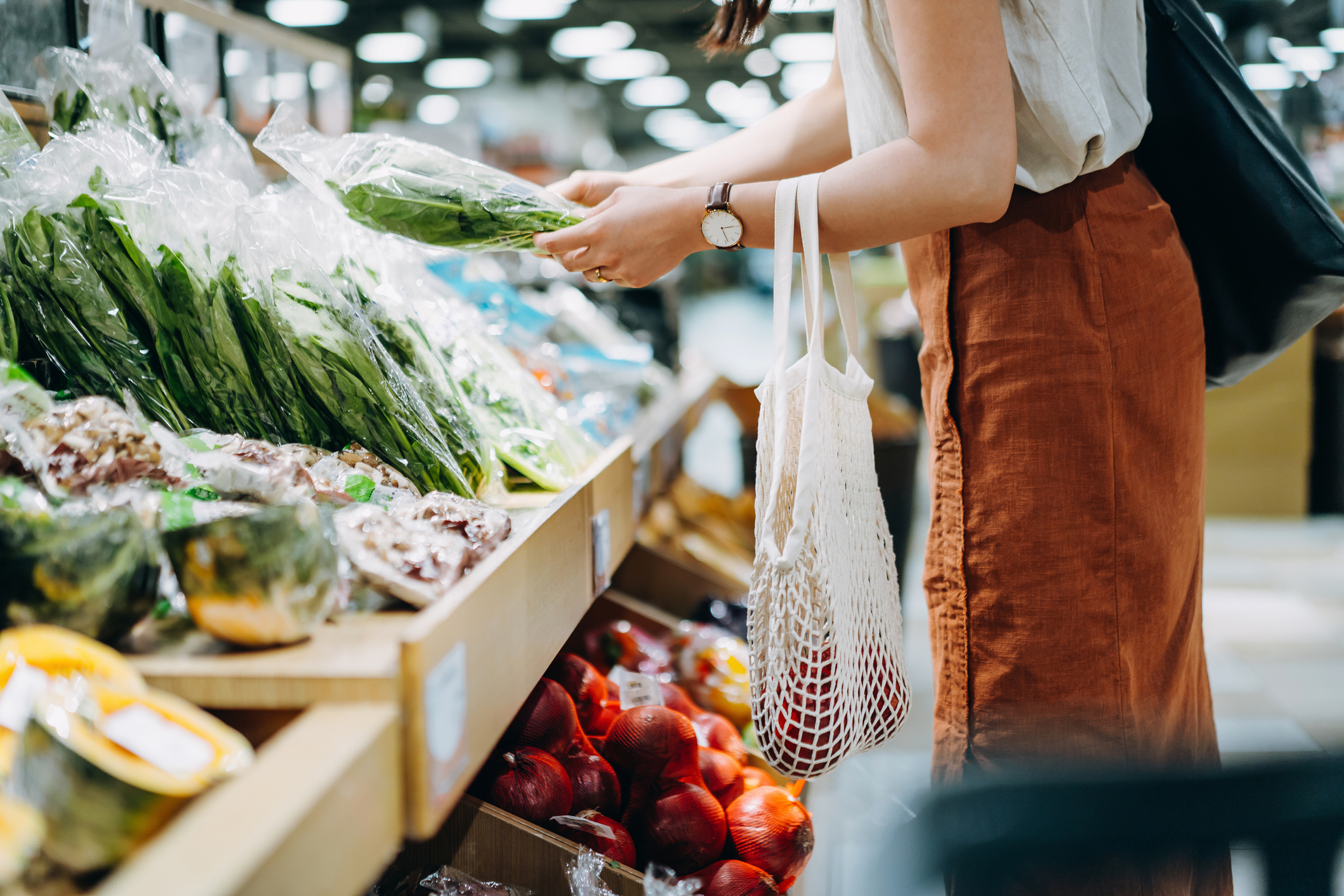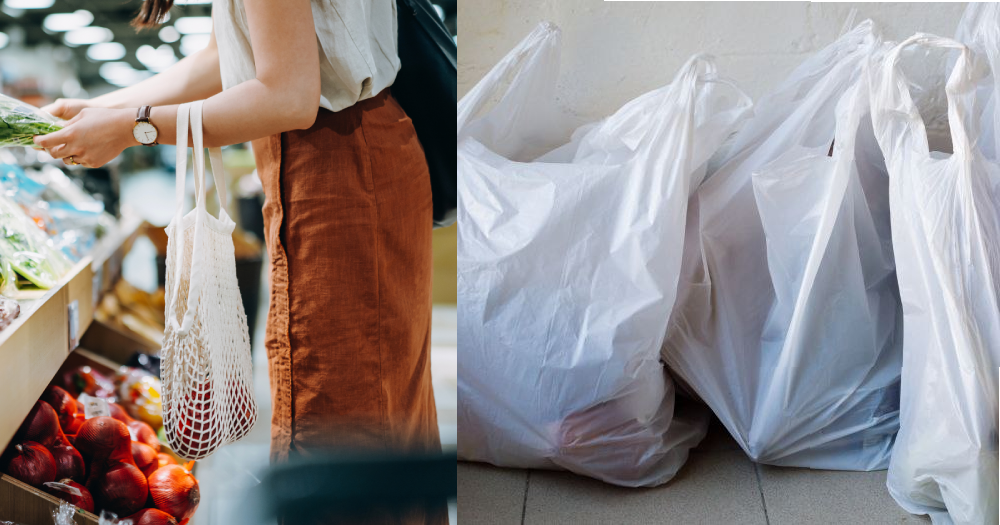The Ministry of Sustainability & Environment (MSE) and the National Environment Agency (NEA) will work on developing an appropriate charging model for disposable carrier bags in supermarkets.
This was announced in Apr. 2021 in their response to a Citizens' Workgroup’s recommendations to tackle the excessive consumption of disposables.
They also clarified that key stakeholders will be consulted regarding the charging model, fee amount, timeline and potential impact, especially on low-income households.
Why is this important?
About 200,000 tonnes of waste discarded in Singapore in 2019 were disposables, comprising items such as carrier bags and takeaway containers.
That’s enough to fill up about 400 Olympic-size swimming pools.
This excessive use of disposables (yes, even those made of paper or degradable materials) has a significant impact on the environment during their production, transportation, and disposal, contributing to carbon emissions and waste generation.
In case it isn’t already clear: Our consumption of disposables is unsustainable.
In 2020, NEA convened a Citizens’ Workgroup to identify and discuss inclusive recommendations to tackle this issue.
The workgroup proposed several solutions under four broad categories of: Education and awareness, legislation, providing alternatives, and financial incentives.
Some suggestions include charging from the third plastic bag onwards at supermarkets and incentivising consumers to track their usage of disposables.
 Photo via Getty Images.
Photo via Getty Images.
Would pay for a bag
Given the possibility that shoppers may need to start paying for plastic bags at local supermarkets, Mothership spoke to several Singaporeans to find out what they think.
Many that we spoke to, whose ages ranged from 20 to 58, mentioned that they would pay for plastic bags at supermarkets as they needed plastic bags at home to throw their trash.
They also said that they have paid for disposable bags when they were shopping, mostly because those outlets charged for disposable bags and they did not have a reusable bag on them. Besides, they added the charge was “not expensive”.
Nelson Chong, 31, added: “If I happen to bring a reusable bag[s], I will use it. But if I don't, I definitely will not buy fewer items to escape the charge.”
Charging from the third bag?
According to a 2018 Singapore Environment Council study, 51 per cent of shoppers take only two or fewer bags per supermarket visit. Hence, one of the workgroup’s recommendation is to start charging from the third bag onwards.
Abdul Matiin Bin Muhamad Hamim, 20, said this is “reasonable” as it will encourage people to get into the habit of bringing their bags during grocery shopping.
A 26-year-old, who wanted to be known as Zhi Hui, carries a reusable bag with her everywhere she goes. She said that charging for bags in general is a good way to encourage people to “think twice” before taking them.
However, not everyone was as supportive, citing major inconveniences such as not having sufficient reusable bags on them.
 Photo via d3sign/Getty Images.
Photo via d3sign/Getty Images.
58-year-old Melissa Ong also pointed out another difficulty:
“If I'm shopping spontaneously, I may not be carrying reusable bags with me. [Even if I plan the trips], it is very difficult to find enough reusable bags of a decent size, or I have to bring along many smaller reusable bags. It’s just not feasible.”
Drawbacks of charging from the third bag: How about charging per transaction or per bag instead?
Some of the people we spoke to pointed out that people may try to game the system. For instance, Ong questioned:
“What if the person buys some items, gets two free bags for that transaction, and then comes back later or gets a family member to buy more items in order to get another two free bags?”
Another issue with charging from the third bag onward is that implementation will be more complex as compared to charging per transaction. This is why Ong prefers a flat-charge model:
“If the priority is to be green, you should charge (for the use of any bags)… it will encourage people to not take any bags if possible. Currently, when shopping at some supermarkets, it’s already like this (there’s already a flat-charge for bags) so I think people have somehow gotten used to this.”
Charging per transaction “is a good place to start”, said 26-year-old Zhi Hui, who thinks that it could be the first step in implementing charges for plastic bags. Once people get used to the idea of paying for these bags, she said that stores could progressively move towards charging for each bag, from the first bag onwards.
Others, like Chong, however, still felt that charging from the third bag is “better” because this gives shoppers “some leeway to not pay for a bag if they are not buying many items”.
Will adapt to the circumstances somehow
Even though they could point out inconveniences in having to adapt to new ways of shopping, the Singaporeans we spoke to were willing to cut down on their usage.
58-year-old Ong, who wouldn’t consider herself “very environmentally conscious”, said this of her current consumption of disposables: “If possible, I will try to reduce my usage. But I won’t purposely go out of my way to do it.”
Others, however, were more willing to put in more effort into changing their behaviour.
“Convenience is something we take for granted,” Zhi Hui said. She added that imposing a charge on bags can also help to cultivate “environmentally-friendly habits”.
“Most of us use [disposable bags] because they are available. By imposing more charges, we can cultivate environmentally friendly habits (e.g. bringing reusable bags around) and change the norm.
Moreover, Zhi Hui also pointed out that Singaporeans are quite “compliant” and just need to get used to the new policies.
“Most of us will adapt to the circumstances,” she said.
Want to be part of this?
To co-deliver some of the recommendations arising from the Citizens' Workgroup on Reducing Excessive Consumption of Disposables, you can register your interest using this form, which will be available until May 31.
By registering your interest, you might be asked to give inputs, ideas and feedback on the content or policy.
Top photo credit: d3sign, Natalie Board/eEyeEm via Getty Images.
This sponsored article by NEA reminded the writer of the number of plastic bags she has accumulated at home.
If you like what you read, follow us on Facebook, Instagram, Twitter and Telegram to get the latest updates.
